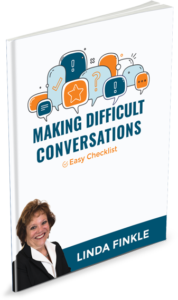There are many types of toxic people in the workplace and having a difficult conversation with one doesn’t have to something you dread.
We all know those toxic types, there’s the controller, the person who wants to control everything and everyone.
The negative person, those who always have something negative or pessimistic to say.
Then there’s the drama magnet, something is always wrong and even if one problem is solved another one emerges.
There’s the bully and the gossiper, who at times may be the same person. These people can come across as judgmental and critical.
The narcissist who is only focused on themselves and doesn’t take anyone else’s feelings or ideas into account.
The sabotagers and the fibbers who fibb, exaggerate and out and out lie. There is also a group of people who just seem to suck the life out of a room whenever they are there.
Engaging with toxic people can often be a waste of time. It distracts you from your work, puts you in a bad mood and drains your energy.
Unfortunately we cannot avoid dealing with these types of people in our work lives. Having difficult conversations can stretch our limits of self control. Here are ideas on how to have a difficult conversation with a toxic person without going postal.
Limit the Conversation.
The longer you engage in a conversation with a toxic person, the greater the likelihood that you will walk away drained and frustrated.
Some ways to tactfully limit the conversation time are:
1. Plan what you want to say in advance. If you know what you want to say in advance you can limit the time you are engaged in a conversation.
2. Set a time limit on the conversation. Tell the other person at the beginning of the conversation you have 15 minutes or 20 minutes and pay attention to your watch.
3. Interrupt the conversation with an excuse. If reaching the predetermined time limit doesn’t have them move on, come up with an excuse…a meeting or a call…something to cut the conversation short.
4. Be direct. This goes back to planning. Know what you want to say and say it directly. Don’t bring in other topics or get distracted by other topics they want to discuss.
Explain the purpose of the conversation.
Almost the first words out of your mouth should be explaining what and why you are having a conversation, and what you want to accomplish. It will help you bring the conversation back on track if it gets derailed.
Don’t try and change them. You won’t be able to change them, but you can request different behavior or actions. You can’t turn a narcissist into anything else or a constant complainer into a wall flower. You can however request the constant complainer to only complain when they also have a solution. Or the narcissist to not interrupt meetings to share or push their ideas. Consider what request you can make to change their behaviors.
Don’t respond to triggers.
Responding to a trigger only makes a toxic person more toxic. For example during a conversation if they judge and criticize don’t respond, simply ignore.
Keep your emotions in check.
If you let your emotions come out it fuels the toxic person even more. Stay calm and cool, regardless of what they are saying.
Close the loop.
When having a conversation with a toxic person make sure to close the loop before ending the conversation. What do you expect from them? Have they agreed to your request? Have you discussed consequences (if appropriate) if nothing changes?
Toxic people cause a lot of harm in the workplace, including losing your best people to your competitors if they are not handled well. You can’t change them but you don’t need to let them make the workplace more challenging than it already is.
Toxic people can suck the life out of us. We spend more time directly or indirectly dealing with these personality types than is helpful to us, the team and the organization. When you need to have a difficult conversation, don’t ignore having it. I have ways to make this less unpleasant and have included them in my Making Difficult Conversations Easy checklist.
Download it at the link below.

© Incedo Group, LLC








